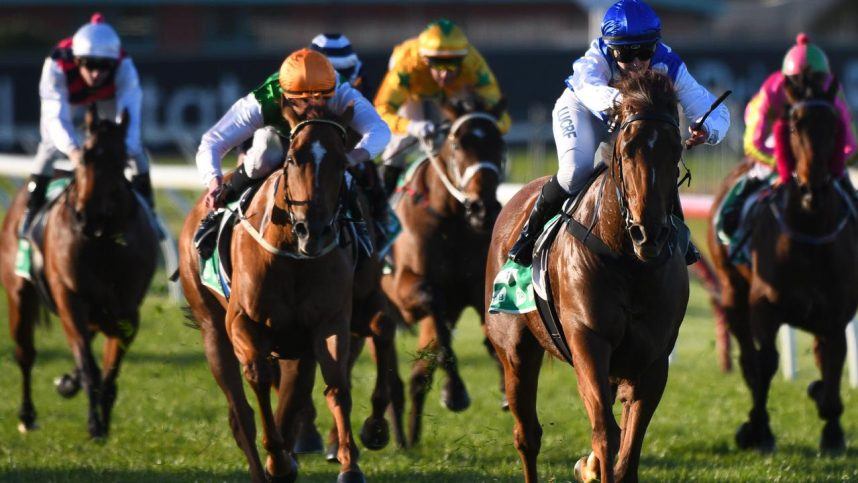‘Massively Intrusive’ Gambling Affordability Checks Not Welcome in Ireland
Posted on: December 27, 2023, 10:09h.
Last updated on: December 27, 2023, 12:45h.
In a move that diverges from the UK’s approach, the Irish government has ruled out implementing affordability checks for gambling customers who lose more than £100 (US$127) per month. This decision comes amidst growing concerns over the potential impact of such checks on individual privacy and the financial well-being of vulnerable individuals.

Affordability checks, as proposed by the UK government, would require bookmakers to assess the financial capacity of their customers to gamble responsibly. This would involve scrutinizing their income, expenses, and gambling habits.
While proponents of this measure argue it could effectively curb problem gambling, critics raise concerns about its intrusive nature. They also harp on the potential for exacerbating financial hardship among low-income individuals.
The UK is bringing in the measure to try and reduce gambling addiction, which officials believe has risen since the COVID-19 pandemic. This is despite indications that the country’s problem gambling rate has remained steady at 0.02% for the past few years.
Browne Clear on Affordability Checks
In an interview with The Sun, Irish Minister for Gambling Regulation James Browne echoed these concerns, stating that affordability checks would be “too intrusive” and could “stigmatize people with gambling problems.” He emphasized the need for a balanced approach that addresses gambling addiction without infringing upon individual privacy or exacerbating financial strain.
My understanding is anecdotally that [it is] having a massive impact on the horse racing over in the United Kingdom in terms of people participating,” said Browne. “We’re not doing that here because I think (and others agree) that affordability checks are quite personally invasive in the people who are gambling.”
Instead of affordability checks, the Irish government is pursuing a different strategy to tackle gambling addiction. The proposed legislation, currently under review, aims to ban gambling advertising on TV and online from 5:30 a.m. to 9 p.m. It would also eliminate promotional offers such as free bets, and strengthens support services for those struggling with gambling problems.
The horse racing industry in Ireland has expressed apprehensions about the potential impact of the government’s gambling legislation. Industry insiders worry that the advertising ban, particularly on dedicated horse racing channels, could erode their revenue streams and ultimately lead to reduced coverage of Irish racing events.
Nothing to Worry About
Deputy Prime Minister Micheál Martin has attempted to allay these fears, asserting that the ban “will not result in job losses” in the industry. However, Racing TV and Sky Sports Racing, two prominent horse racing channels, don’t agree.
Both have warned that the legislation could significantly curtail their operations in Ireland because of the diminished advertising revenue. As a result, they’ve tried to get Browne to show them greater latitude in broadcasting permissions.
In response to these concerns, Browne has maintained that granting exemptions to specific channels would grant them an unfair monopoly on gambling advertising in the country. He reiterated the government’s commitment to striking a balance between curbing gambling addiction and preserving the financial viability of the horse racing industry.
The Irish government’s approach to gambling regulation reflects a cautious stance, prioritizing individual privacy and the financial security of vulnerable individuals. At the same time, it addresses the growing global attention to problem gambling.
Related News Articles
Ireland Gaming Operators Face Jail Time for Breaking Rules Under New Law
Irish Justice Department Gets Behind Gambling Reforms
Most Popular
LOST VEGAS: The Foster Brooks Robot at MGM Grand
Bally’s Sets Date for Tropicana Las Vegas Implosion & Party
Most Commented
-
VEGAS MYTHS RE-BUSTED: You Don’t Have to Pay Resort Fees
— August 2, 2024 — 16 Comments -
VEGAS MYTHS RE-BUSTED: Elvis Was a Straight-Up Racist
— August 9, 2024 — 11 Comments -
ANTI-SOCIAL BEHAVIOR: Vegas Casino Buffet Stunt in Poor Taste Goes Viral
— August 16, 2024 — 7 Comments -
VEGAS MYTHS RE-BUSTED: The Strip Tried Appealing to Families and Failed
— August 23, 2024 — 7 Comments
















Last Comment ( 1 )
There is an arrogance around the whole issue of introducing a proper regulated gaming legislation in Ireland ! The government is already sending out a message "We know better than anyone else" and this is always been the case in Ireland not just with gaming but with other issues as well over the years , What is baffling and somewhat embarrassing is that this is coming from a country that is probably the last country in the world to have a properly regulated gaming industry ?